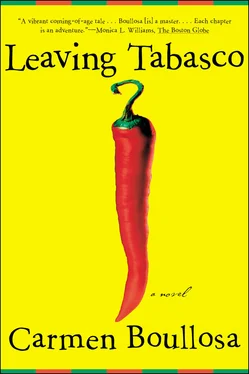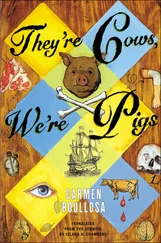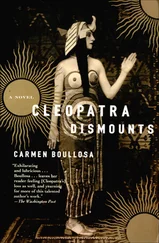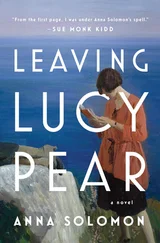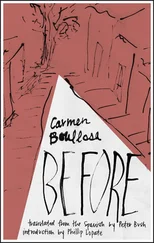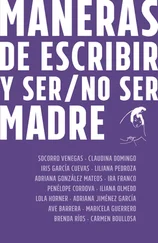The picoleznas that often hang head-down from branches were shattered unmercifully on the ground because they had landed on their unprotected, soft heads as they tried to change position. The odd zacua or tanager had avoided destruction, because they shared the huge, socklike nests hanging from the kapok trees. But as evening came on, we heard them fighting among themselves with such violence that when children put their hands in the nest to rescue them, they pulled out birds without eyes, savagely pecked, already dead. They had fought to the death over these tiny areas of safety.
For many children these were glory days. They made more noise than the birds, jumping and scurrying up and down the town, as if the falling of the birds were some kind of fun party, a holiday of beaks and blood that excited them beyond the limits of self-control. Youngsters, even the young teacher at the secondary school, strutted around the streets with the air of heroes, displaying their most recent rescues from the rivers and giving first aid to the wounded birds on the town streets.
The next morning, as simply as they had fallen to earth, the birds soared upward again, as if nothing had happened, as if they knew nothing of the thousands of corpses littering the streets and highways. We were obliged to give the town a thorough cleanup, before it started to stink. Grandma suggested we stew some of the birds that were still lukewarm. She proposed we all make a mole sauce to get rid of the bad taste that Sunday had left in our mouths, claiming that it was an outrageous waste to throw the birds away, that it was really a sin to be so unthrifty, because among the corpses there were dozens of blue-footed ducks, whose flesh tasted even better than a turtle’s. The priest wasn’t around to say either way, lost on God knows what road. But the doctor said that the behavior of the birds might be indicative of some sickness that could be passed on to humans, and that the best thing was to get rid of the corpses as hygienically as possible, by cremating them in a huge bonfire on the outskirts of town. So those who had earlier been the saviors of the birds were transformed by this medical edict into inquisitorial lowlifes, burning the victims they had once hoped to save. All we kids attended the bonfire, from start to finish, even though the stink was disgusting. When the fire was extinguished, we were left without a single lovely, showy feather; only the longer sorts of beaks and bones remained. The sole trace of that vanished beauty was a pile of dark ashes.
Throughout the week, the town heard a mild rumor, gossip that the jungle was being cleared on a ranch recently purchased by the governor. They were ripping out trees with cranes and excavators to clear a space for pastureland. They said the roads were jammed with trucks loaded with timber and that the area had been stripped bare, as if a single tree had never grown there. “That’s why the birds fell to the ground” was the whisper.
On Saturday, at the market, there appeared stalls with feathers for sale and large plates of clay and plaster trimmed with feathers. Instead of using paints, the Indians had decided to color them with feathers, somehow sticking them onto the plates. I wanted to buy some reddish ones and some with almost metallic colors, but Grandma scolded me. “Didn’t you hear what the doctor said? Are you really in a rush to die? You’re a dimwit, you know that?”
The following Sunday the volcano that had been dormant for centuries sent out prolonged, dense columns of smoke. It was impossible to leave home because the air was thick with corrosive material that hurt our eyes and throats. If people were obliged to leave the house, they had to cover their mouths with a handkerchief, which was soon darkened with soot, as if they’d put it near smoke escaping from an oil fire.
We all stayed steadfastly indoors, with the balconies and doors tight shut, suffocating in the heat, with the ceiling fans whirring, because nobody could stand the burning air outside. Mass was canceled, said the rumor going from house to house. The Indians didn’t come down from the hills to attend it. The market was dead, the streets fit only for ghosts. Agustini had lost its identity, had turned into a vacuum.
We did not go to the priest’s breakfast. No doubt the nuns stuffed their bellies all day long with tamales, while I, stretched in my hammock, indifferent to the town’s boredom, was devouring Robin Hood . I finished the book in a single day.
But for everybody else the day meant only discomfort and suffocation. Our houses were designed to be left open. The rooms were built individually, giving onto open-air patios and passageways, ways, so some families spent the whole day in the kitchen, to avoid movement, while others darted from one room to another, with blackened handkerchiefs over their noses.
The teacher at the secondary school printed out on the school’s stencil machine a series of instructions to be followed in case the activity of the volcano increased. He advised us to leave Agustini at the first sounding of the alarm; the church bells would ring out three-two, three-two fives times over, and he explained how to sew face masks which would allow us to leave home, if it came to that, and listed the things we should take with us: containers of water, packets of crackers, flashlights, candles, and, if possible, a radio, with batteries included.
His instructions filled three typed pages and included two illustrations: a sketch of the homemade face mask and another of the evacuation routes. He gave a supplementary list of things to carry if we had to abandon the town, for example, blankets and hammocks for sleeping, and urged us to load as few goods as possible into our cars in order to leave room for as many people as possible, regardless (underlined) of their race, age, or sex.
My grandmother said these instructions were pure nonsense, my mother said she couldn’t be bothered with them, but Dulce did show some real interest, so I read them out loud to her. We were the only two in the house who knew what the teacher had recommended, and we both decided simultaneously that if the volcano was determined to swamp us in lava or bury us in ashes, the only recourse was to remove ourselves at the first opportunity to another town, as every other measure seemed pointless.
In the afternoon a wind began to blow and I think it scared us all. Branches came crashing down from trees. The highway was blocked by two uprooted trees. But the smoke from the volcano was dispersed, disappearing as unexpectedly as it had appeared.
The following Sunday the coffee beans and the cacao pods which had recently sprouted fell off the plants. Every important household received the news from their own foreman, who had seen the disaster earlier that morning. When the first rays of the sun pierced the sky, the coffee beans, still completely green — not the least bit darkened and with still a lot of growing to do — and the little shoots that announced the arrival of the cocoa pod all fell to the ground without the intervention of any hail shower or other kind of storm, without any rhyme or reason whatever. The tips of the branches of the cocoa and coffee plants looked stunted, as if the ends had been nipped off, and the green fruit, unripe and unusable, lay scattered on the ground. Nothing like this had ever happened before. There were lamentations in our houses that far surpassed any grief over the dead birds. It was a direct blow against our pockets, for the livelihoods of our townsfolk depended far more on the coffee, cocoa, and oranges of our plantations than on cattle.
In the afternoon white spores were blown across the town, so many of them floating in the air that the town seemed buried under a white mist. Our ceiling fans sent them dancing around the bedrooms and even seemed to attract them, creating whirlwinds winds of cotton balls that resisted any attempt to budge them. The corners of rooms and streets were cloaked with a woolly whiteness, like pillows fit for a princess. Then the pink light of sunset turned it into a fiery-colored fluff that we had to sweep hurriedly away, because it was starting to emit a penetrating stink of sulfur as the fluff turned into smoke. We ended up sweeping the whole town clean of the intolerable stink, waving our brushes around like fans. Luckily, our maneuver was successful and the stink was banished before we succumbed to vomiting and headaches.
Читать дальше
